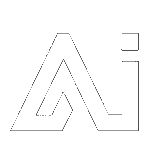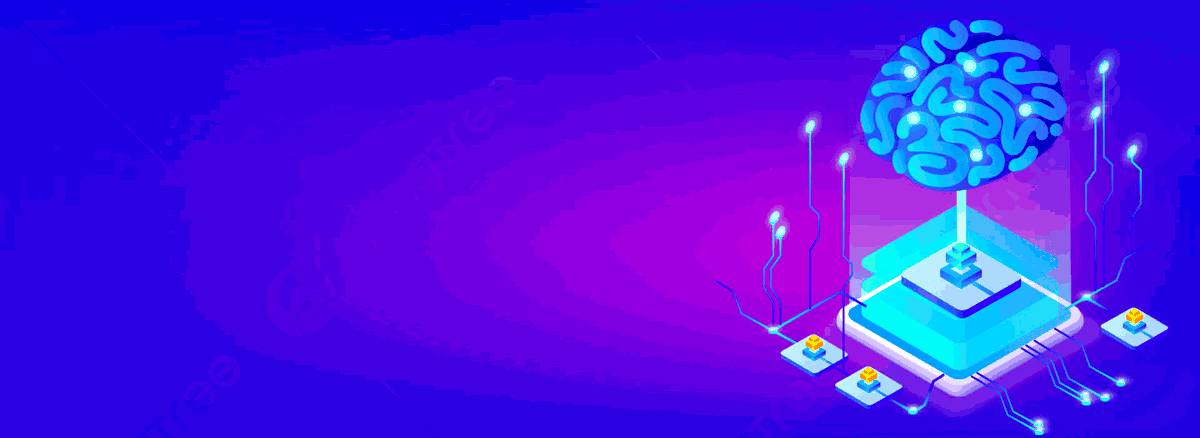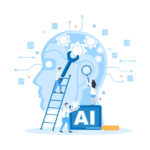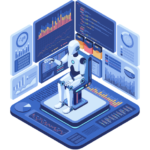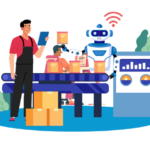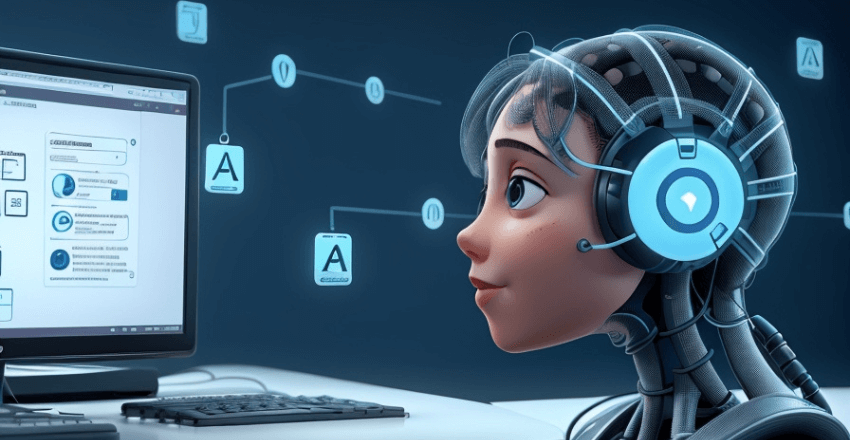
“How AI will Change Web Development?” Join us as we navigate the intriguing world of AI, unraveling its transformative power in web development.
Artificial Intelligence (AI) and Technology
In just a few short years, Artificial Intelligence (AI) has made significant strides in changing the way we interact with technology. With the rise of AI, web development is set to undergo a significant revolution, impacting the traditional norms of website design and development.
Summary of the key points from the article:
| Topic | Key Points |
|---|---|
| Artificial Intelligence (AI) and Technology | AI has made huge strides in changing how we interact with technology and will revolutionize web development. |
| AI-powered Web Development Tools | AI tools allow web developers to create more customized experiences, optimize SEO, enhance security, and swiftly create prototypes. |
| The Impact of AI | The impact of AI on web development is significant and exploring its capabilities is essential to stay competitive. |
| AI in Various Industries | AI is being applied across industries like healthcare, finance, retail, manufacturing, and transportation. |
| The Impact of AI on Web Development | AI is transforming web development through chatbots, personalized experiences, predictive analytics, etc. |
| AI and User Experience | AI can enhance UX through features like chatbots, voice interfaces, and predictive experiences. |
| SEO Optimization with AI | AI tools like SEMrush and Market Brew can analyze data to significantly improve SEO. |
| Rapid Prototyping with AI | AI can automate parts of prototyping, enabling faster iterations and quicker time to market. |
| Cutting-edge Security with AI | AI tools like Darktrace and Cloudflare can identify and respond to security threats faster. |
| The Importance of Hiring an AI Developer | Hiring an AI developer is crucial to stay competitive and leverage the power of AI. |
In summary, the article explores how AI is transforming various aspects of web development and why embracing AI is essential for companies to stay ahead. Hiring AI talent and integrating AI tools can help drive business growth. In summary, the article explores how AI is transforming various aspects of web development and why embracing AI is essential for companies to stay ahead. Hiring AI talent and integrating AI tools can help drive business growth.
AI-powered Web Development Tools
As AI technology progresses, web developers are equipped with powerful tools to create more customized and personalized user experiences, optimize search engine rankings, enhance website security, and swiftly create functional prototypes.
The Impact of AI
The impact of AI on web development cannot be overstated, and it is essential to explore its capabilities and limitations to stay ahead of the game in the fast-paced world of web development.
AI in Various Industries – How AI will change web development
Artificial Intelligence (AI) is no longer a futuristic concept confined to the realm of science fiction. It has become a reality, permeating every industry and revolutionizing the way we do business.
From healthcare, where AI is used to predict disease patterns, to finance, where it’s leveraged for risk analysis and fraud detection, the rise of AI is a global phenomenon that’s reshaping the world as we know it.
Table 1: AI Applications in Various Industries
| Industry | Application of AI |
|---|---|
| Healthcare | Disease prediction, Drug discovery |
| Finance | Risk analysis, Fraud detection |
| Retail | Customer behavior prediction, Inventory management |
| Manufacturing | Quality control, Predictive maintenance |
| Transportation | Autonomous vehicles, Route optimization |
In the realm of web development, AI’s potential is vast and transformative. AI can automate routine tasks, personalize user experiences, optimize SEO efforts, and much more.
For instance, AI chatbots can provide real-time customer support, while AI-driven analytics can offer insights into user behavior, helping businesses tailor their services to meet customer needs.
“The future of web development is intertwined with AI. It’s not just a tool; it’s a game-changer that’s redefining the way we build and interact with the digital world.”
For CEOs and CTOs, understanding AI is not just beneficial; it’s essential. As leaders, the onus is on you to steer your company towards the future, and AI is a significant part of that future.
Whether it’s deciding to hire an AI specialist, investing in AI training for your team, or integrating AI tools into your web development process, these decisions can be the difference between staying ahead of the curve or falling behind.
Key Terms:
- Artificial Intelligence (AI): A branch of computer science that aims to create machines that mimic human intelligence.
- AI Chatbots: AI programs designed to simulate conversation with human users.
- AI-Driven Analytics: The use of AI to analyze data and provide insights.
- SEO (Search Engine Optimization): The practice of optimizing a website to make it more visible on search engines.
The Impact of AI on Web Development – How AI will change web development
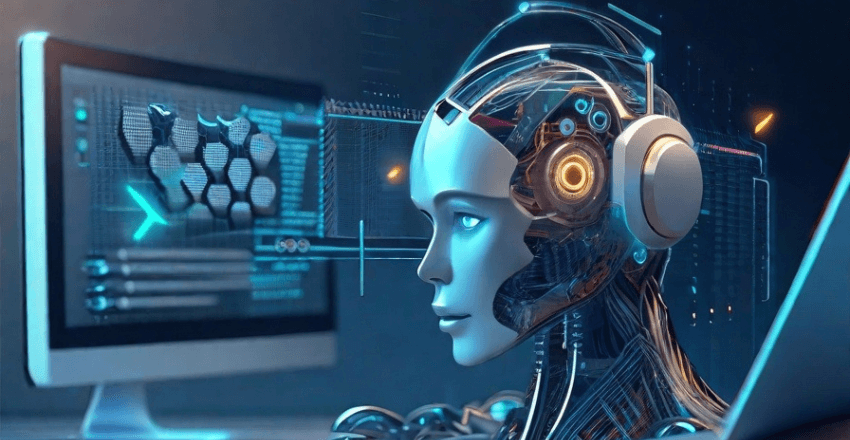
Artificial Intelligence (AI) is making waves in the web development sector, fundamentally transforming the way we design, build, and maintain websites. From automating routine tasks to enhancing user experience, AI is not just an add-on; it’s becoming an integral part of the web development process.
Let’s delve into some specific examples of how AI is being applied in web development:
- Chatbots and Virtual Assistants: AI-powered chatbots and virtual assistants are becoming increasingly common on websites. They can interact with users, answer queries, and provide personalized support 24/7. For instance, the AI chatbot ‘GPT-3’ by OpenAI can generate human-like text, making interactions feel more natural and less robotic.
- User Experience (UX) Personalization: AI can analyze user behavior and personalize the website accordingly. This could mean showing product recommendations based on browsing history or adjusting the website’s layout based on the user’s device. Amazon is a prime example of a company using AI to personalize user experiences, with its AI algorithms suggesting products based on past purchases and browsing history.
- SEO Optimization: AI tools can analyze vast amounts of data to improve a site’s search engine ranking. Tools like SEMrush use AI to provide keyword suggestions, track keyword rankings, and analyze backlinks.
Table 2: AI Applications in Web Development
| Application | Example |
|---|---|
| Chatbots and Virtual Assistants | GPT-3 by OpenAI |
| User Experience Personalization | Amazon’s product recommendations |
| SEO Optimization | SEMrush’s keyword analysis |
Incorporating AI into web development strategies brings a host of benefits. It can automate and streamline tasks, freeing up developers to focus on more complex aspects of web development. It can enhance user experience, leading to increased user engagement and higher conversion rates.
Moreover, it can provide valuable insights into user behavior, helping businesses tailor their services to meet customer needs.
“AI is the future of web development. It’s not just about making our lives easier as developers; it’s about enhancing the user experience and driving business growth.”
Key Terms:
- Chatbots and Virtual Assistants: AI programs designed to simulate conversation with human users.
- User Experience (UX) Personalization: The use of AI to tailor the website according to user behavior.
- SEO Optimization: The use of AI to analyze data and improve a site’s search engine ranking.
The Role of AI in Personalizing User Experience
Transitioning into the realm of user experience, AI’s capabilities are truly game-changing. It has the power to create highly personalized experiences that can make users feel understood and valued.
This personalization isn’t just about addressing users by their names; it’s about providing relevant content, recommendations, and interactions based on their behavior and preferences.
To illustrate, let’s delve into some specific examples and case studies of AI-driven personalization:
- Netflix: The streaming giant uses AI to analyze user behavior and provide personalized movie and TV show recommendations. This is why your Netflix homepage looks different from someone else’s – it’s tailored to your viewing habits.
- Spotify: The music streaming platform uses AI to curate personalized playlists for its users. The “Discover Weekly” playlist, for instance, is created using AI algorithms that analyze your listening habits and find similar music you might like.
- Amazon: As mentioned earlier, Amazon uses AI to suggest products based on your browsing history and past purchases. This personalization extends to its email marketing, where it sends out personalized product recommendations to its customers.
Table 3: AI-Driven Personalization
| Company | Personalization Strategy |
|---|---|
| Netflix | Personalized movie and TV show recommendations |
| Spotify | Curated playlists based on listening habits |
| Amazon | Product recommendations based on browsing history and past purchases |
The benefits of personalized user experiences for businesses are manifold. Firstly, it increases user engagement as users are more likely to interact with content that is relevant to them. Secondly, it can lead to higher conversion rates as personalized recommendations can prompt users to make a purchase.
Lastly, it can improve customer loyalty as users are likely to return to a website that provides a personalized experience.
“Personalization is the future of user experience. With AI, we can create experiences that are not just personalized, but also dynamic, adapting in real-time to the user’s behavior.”
AI and User Experience: A Perfect Match – How AI will change web development

Continuing our exploration, let’s delve into the harmonious relationship between AI and User Experience (UX). AI has the potential to significantly enhance UX, creating more intuitive, engaging, and user-friendly websites.
To illustrate this, let’s look at some examples of how AI can enhance UX:
- AI Chatbots: As we’ve mentioned earlier, AI chatbots can provide real-time customer support, answering queries and guiding users through the site. This not only enhances UX by providing immediate assistance but also frees up human customer service representatives to handle more complex queries.
- Voice User Interface (VUI): AI-powered voice assistants like Amazon’s Alexa or Google Assistant have revolutionized the way users interact with websites and apps. Users can now use voice commands to search for information, make purchases, and more, making the user experience more convenient and accessible.
- Predictive UX: AI can analyze user behavior to predict what a user might want to do next and then create a UX that caters to these anticipated actions. For example, a website might suggest items to add to a shopping cart based on what a user has looked at or purchased in the past.
Table 4: AI Enhancements in User Experience
| Enhancement | Example |
|---|---|
| AI Chatbots | Real-time customer support |
| Voice User Interface (VUI) | Voice commands with Amazon’s Alexa or Google Assistant |
| Predictive UX | Suggested items based on past user behavior |
Good UX is crucial for customer retention and conversion.
A website that is easy to navigate, responsive, and tailored to a user’s needs and preferences is more likely to retain visitors and convert them into customers. In fact, a study by Forrester Research found that a well-designed user interface could increase a website’s conversion rate by up to 200%.
“AI and UX are a perfect match. AI allows us to create more intuitive, engaging, and personalized experiences, which ultimately leads to higher customer retention and conversion.”
SEO Optimization with AI: Outranking the Competition
As we continue our journey, let’s shift our focus to the realm of Search Engine Optimization (SEO). SEO is a crucial aspect of web development, and AI has the potential to supercharge these efforts, helping websites rank higher in search engine results.
AI can analyze vast amounts of data more quickly and accurately than a human can. This capability can be leveraged to identify SEO opportunities, such as optimal keywords, backlink opportunities, and content optimization strategies.
To illustrate, let’s look at some specific AI tools that are revolutionizing SEO:
- SEMrush: This tool uses AI to provide keyword suggestions, track keyword rankings, and analyze backlinks. It can also perform a site audit to identify SEO issues that need to be addressed.
- Market Brew: Market Brew is an AI platform that models search engine behaviors to provide predictive analytics. It can help businesses understand how changes to their website will affect their search engine rankings before they implement them.
- BrightEdge: BrightEdge uses AI to provide insights into the performance of content and recommendations for improvement. It can identify trending topics and suggest content ideas that will resonate with your audience.
Table 5: AI Tools for SEO Optimization
| Tool | Function |
|---|---|
| SEMrush | Keyword suggestions, ranking tracking, backlink analysis |
| Market Brew | Predictive analytics, modeling search engine behaviors |
| BrightEdge | Content performance insights, trending topic identification |
Improved SEO can significantly enhance online visibility, driving more traffic to your website. This, in turn, can lead to increased customer engagement, higher conversion rates, and ultimately, business growth.
“AI is a game-changer for SEO. It allows us to analyze data more quickly and accurately, identify opportunities, and implement strategies that will help us outrank the competition.”
Rapid Prototyping with AI: From Idea to Reality Faster
As we forge ahead, let’s delve into another exciting application of AI in web development: rapid prototyping. Rapid prototyping is the process of quickly creating a working model (or prototype) of a part or a system to demonstrate its functionality.
With AI, this process can be significantly accelerated, allowing businesses to bring their ideas to life faster.
AI can automate many aspects of the prototyping process, from generating design options to testing and refining these designs.
Let’s look at some examples of how AI can speed up prototyping:
- Generative Design: AI can be used to generate a multitude of design options based on a set of predefined parameters. This not only speeds up the design process but also allows for the exploration of designs that might not have been considered otherwise.
- Automated Testing: AI can automate the testing of prototypes, identifying issues and potential improvements faster than a human could. This allows for quicker iterations and refinements of the design.
- Predictive Analysis: AI can predict how a design will perform under various conditions, allowing for adjustments to be made before the prototype is even built.
Table 6: AI Applications in Rapid Prototyping
| Application | Function |
|---|---|
| Generative Design | Generates design options based on predefined parameters |
| Automated Testing | Automates the testing of prototypes |
| Predictive Analysis | Predicts performance under various conditions |
Rapid prototyping has several benefits for product development and market launch. It allows for quicker iterations, which means that products can be refined and improved faster.
It also enables businesses to test and validate their ideas early in the development process, reducing the risk of costly failures later on. Finally, it can shorten the time to market, giving businesses a competitive edge.
“AI is revolutionizing rapid prototyping. It’s not just about speed; it’s about enabling us to explore more design options, make quicker iterations, and bring our ideas to life faster than ever before.”
Cutting-edge Security with AI: Safeguarding Your Website
Navigating further into our exploration, we now turn our attention to a crucial aspect of web development: security. In the current digital landscape, the importance of website security cannot be overstated. With the escalating rise of cyber threats, it’s imperative for businesses to fortify their websites.
This is where AI steps in, offering significant enhancements to website security and aiding businesses in safeguarding their data and preserving their customers’ trust.
AI has the capability to identify and counter security threats with a speed and accuracy that surpasses human ability. It can sift through vast volumes of data to detect unusual patterns that may signal a security breach. Furthermore, AI can learn from these patterns to anticipate and thwart future threats.
To illustrate, let’s delve into some specific AI tools that are bolstering website security:
- Darktrace: Darktrace employs AI to detect and counter cyber threats in real time. It’s capable of identifying subtle patterns that may signal a threat, enabling businesses to react before the threat escalates.
- Cylance: Cylance utilizes AI to predict and prevent advanced threats and malware. It can scrutinize millions of characteristics of a file to determine whether it’s safe or threatening.
- Cloudflare: Cloudflare harnesses AI to protect websites from a range of threats, including DDoS attacks, malicious bots, and data breaches. It analyzes traffic patterns to identify and block threats.
Table 7: AI Tools for Website Security
| Tool | Function |
|---|---|
| Darktrace | Real-time threat detection and response |
| Cylance | Advanced threat and malware prevention |
| Cloudflare | Protection from DDoS attacks, malicious bots, and data breaches |
Having robust website security is pivotal for maintaining business reputation and customer trust. A security breach can result in data loss, downtime, and damage to a business’s reputation. Moreover, it can erode customer trust, which can be challenging to restore.
Therefore, investing in AI-enhanced security measures is not just beneficial; it’s essential.
“AI is a game-changer for website security. It allows us to detect and respond to threats faster and more accurately, helping us protect our data and maintain our customers’ trust.”
The Importance of Hiring an AI Developer – How AI will change web development
As we progress further into the transformative landscape of AI in web development, it’s essential to spotlight the escalating demand for AI developers.
These professionals are at the vanguard of the AI revolution, equipped with the necessary skills and expertise to tap into the potential of AI and apply it effectively in a business context.
Across various industries, AI developers are increasingly sought after. A report by the job search site Indeed indicates a significant surge in job postings for AI specialists in recent years, underscoring the escalating importance of AI in the business world.
AI developers contribute a unique set of skills and expertise to a team. They are adept at programming languages such as Python and Java, possess a deep understanding of machine learning algorithms, and are skilled in handling large datasets.
Furthermore, they have a robust foundation in mathematics and statistics, which is pivotal for developing and implementing AI models.
Table 8: Key Skills of an AI Developer – How AI will change web development
| Skill | Description |
|---|---|
| Programming | Proficiency in languages such as Python and Java |
| Machine Learning | Understanding of machine learning algorithms |
| Data Analysis | Ability to work with large datasets |
| Mathematics and Statistics | Foundation in mathematics and statistics for developing AI models |
Engaging an AI developer can equip businesses to stay competitive in the digital age.
They can implement AI strategies that enhance web development, improve user experience, optimize SEO, and fortify website security. By doing so, they can help businesses leverage the power of AI, stay ahead of the competition, and drive growth.
“In the digital age, hiring an AI developer isn’t a luxury; it’s a necessity. They have the skills and expertise to harness the power of AI, helping businesses stay competitive and drive growth.”
Common Problems and Solutions – How AI will change web development

Problem 1: Understanding and Implementing AI Technologies
Many people struggle with understanding AI technologies and how to implement them in web development. AI involves complex concepts and requires a certain level of expertise to use effectively.
Solution:
To solve this problem, it’s crucial to invest in education and training. There are numerous online courses and resources available that can help you understand AI and its applications in web development.
Pro Tip: Start with foundational courses in AI and machine learning, then move on to more specific courses that focus on applying AI in web development. Websites like Coursera, Udemy, and edX offer a wide range of courses in these areas.
Example: Google’s AI Hub offers a variety of resources, including tutorials and end-to-end code samples, that can help you understand and implement AI technologies.
Problem 2: Integrating AI with Existing Systems
Integrating AI technologies with existing web development systems and processes can be a challenge. This is especially true for businesses that use legacy systems or have complex infrastructures.
Solution:
The key to successful integration is careful planning and testing. Start by identifying the areas where AI can provide the most benefit, then develop a detailed plan for integrating AI technologies into these areas.
Pro Tip: Consider using AI platforms that are designed to integrate with a wide range of systems and technologies. These platforms can make the integration process smoother and more efficient.
Code Sample:
Here’s an example of how you might use the TensorFlow.js library to integrate machine learning capabilities into a web application:
// Import TensorFlow.js
import * as tf from '@tensorflow/tfjs';
// Load a pre-trained model
const model = await tf.loadLayersModel('https://path/to/my/model.json');
// Make a prediction
const prediction = model.predict(tf.tensor2d([inputData]));Problem 3: Ensuring Data Privacy and Security
With AI technologies often requiring large amounts of data to function effectively, ensuring data privacy and security can be a significant challenge.
Solution:
To ensure data privacy and security, it’s crucial to follow best practices for data management and security. This includes encrypting sensitive data, using secure protocols for data transmission, and complying with data privacy regulations.
Pro Tip: Regularly audit your data practices and security measures to identify potential vulnerabilities. Also, consider using AI technologies that have built-in security features.
Example: TensorFlow.js, for instance, runs entirely in the browser, providing an extra layer of security as the data never leaves the user’s device.
FAQs – How AI will change web development

How can AI help in improving user experience in web development?
AI can significantly enhance user experience in web development by personalizing content, providing real-time support through chatbots, and predicting user behavior to offer relevant suggestions.
Code Sample:
Here’s an example of how you might use TensorFlow.js to create a recommendation system:
// Import TensorFlow.js
import * as tf from '@tensorflow/tfjs';
// Load a pre-trained model for recommendations
const model = await tf.loadLayersModel('https://path/to/my/model.json');
// Make a recommendation based on user data
const recommendation = model.predict(tf.tensor2d([userData]));Pro Tip: Always consider the user’s privacy when personalizing experiences. Make sure to anonymize data and provide users with options to opt-out of personalization.
How can AI be used for SEO optimization in web development?
AI can analyze vast amounts of data to identify SEO opportunities, such as optimal keywords, backlink opportunities, and content optimization strategies.
Pro Tip: Tools like SEMrush and Market Brew use AI to provide keyword suggestions, track keyword rankings, and analyze backlinks.
How can AI enhance website security?
AI can identify and respond to security threats faster and more accurately than a human can. It can analyze vast amounts of data to detect unusual patterns that may indicate a security breach.
Pro Tip: Tools like Darktrace and Cloudflare use AI to detect and respond to cyber threats in real time.
How can AI speed up the prototyping process in web development?
AI can automate many aspects of the prototyping process, from generating design options to testing and refining these designs.
Pro Tip: Tools like Sketch2React use AI to convert hand-drawn design sketches into working HTML code, speeding up the prototyping process.
What programming languages are commonly used in AI for web development?
Python is the most popular language for AI due to its simplicity and the availability of AI and machine learning libraries like TensorFlow and PyTorch. JavaScript is also used, especially for web-based AI applications.
Pro Tip: If you’re new to AI, start with Python. It’s widely used in the AI community and has plenty of resources and libraries available.
How can AI help in improving website accessibility?
AI can enhance website accessibility by automatically generating alt text for images, transcribing audio content, and improving website navigation for people with disabilities.
Pro Tip: Tools like Microsoft’s AI for Accessibility and Google’s Cloud Vision API can help improve website accessibility.
How can I start learning about AI in web development?
There are numerous online courses and resources available that can help you understand AI and its applications in web development. Websites like Coursera, Udemy, and edX offer a wide range of courses in these areas.
Pro Tip: Start with foundational courses in AI and machine learning, then move on to more specific courses that focus on applying AI in web development. Practical projects are also a great way to learn and apply your knowledge.
Will AI Replace Full Stack Developers? – How AI will change web development
As we navigate the ever-evolving landscape of technology, one question that often surfaces is, “Will AI replace full-stack developers?” This question, while valid, often stems from a misunderstanding of the role of AI in the field of web development.
AI, with its ability to automate tasks and analyze vast amounts of data, has indeed revolutionized many industries. However, it’s crucial to understand that AI is a tool designed to augment human capabilities, not replace them.
Full-stack development is a multifaceted discipline that requires a broad range of skills. It involves understanding and interpreting complex requirements, designing and architecting systems, writing and reviewing code, debugging, and communicating with team members and stakeholders.
These tasks require human judgment, creativity, and problem-solving skills – qualities that AI, as of now, cannot replicate.
Table 1: Full Stack Developer Tasks vs AI Capabilities
| Full Stack Developer Tasks | AI Capabilities |
|---|---|
| Understanding and interpreting complex requirements | Limited understanding of context and nuance |
| Designing and architecting systems | Can assist with pattern recognition but lacks creative problem-solving |
| Writing and reviewing code | Can automate certain tasks like code formatting or bug identification |
| Debugging | Can assist but requires human oversight |
| Communicating with team members and stakeholders | Limited to predefined responses and lacks emotional intelligence |
Moreover, AI tools themselves need to be designed, developed, and maintained by human developers. This has led to the emergence of new roles such as AI engineers and machine learning engineers, who combine skills in software development and machine learning.
“AI is not a replacement for full-stack developers. Instead, it’s a tool that can help them work more efficiently and effectively. The human touch in development is irreplaceable.”
In the foreseeable future, it’s more likely that AI will change the role of the full-stack developer rather than replace it. Developers may find themselves working more with AI tools, incorporating AI technologies into their applications, and learning new skills to adapt to the evolving tech landscape.
So, while AI is indeed a game-changer, the need for skilled, creative, and adaptable human developers remains paramount.
Wrapping up – How AI will change web development
As we draw our exploration to a close, let’s take a moment to reflect on the transformative potential of AI in web development.
From enhancing user experience and supercharging SEO efforts to bolstering website security and accelerating the prototyping process, AI is not just a tool; it’s a game-changer that’s redefining the way we build and interact with the digital world.
For CEOs and CTOs, embracing AI is not just beneficial; it’s essential. As leaders, you have the power to steer your company towards the future, and AI is a significant part of that future.
Whether it’s integrating AI tools into your web development process, investing in AI training for your team, or even hiring an AI developer, these decisions can indeed serve as the pivotal point between staying ahead of the curve or, unfortunately, falling behind.
Table 9: Key Takeaways – How AI will change web development
| Key Takeaway | Description |
|---|---|
| AI in Web Development | AI has the potential to transform web development in various ways, from enhancing UX to bolstering security. |
| Embrace AI | CEOs and CTOs should embrace AI in their web development strategies to stay competitive in the digital age. |
| Hire an AI Developer | Hiring an AI developer can help businesses leverage the power of AI and drive growth. |
“The future of web development is intertwined with AI. As leaders, it’s up to us to embrace this technology and harness its power to drive growth and stay competitive.”
In conclusion, the future of web development is here, and it’s powered by AI. So, why wait? Embrace AI in your web development strategy, hire an AI developer, and revolutionize your web development game. The future is now, and it’s time to seize it.
Jane Watson is a seasoned expert in AI development and a prominent author for the “Hire AI Developer” blog. With over a decade of experience in the field, Jane has established herself as a leading authority in AI app and website development, as well as AI backend integrations. Her expertise extends to managing dedicated development teams, including AI developers, Machine Learning (ML) specialists, and other supporting roles such as QA and product managers. Jane’s primary focus is on providing professional and experienced English-speaking AI developers to companies in the USA, Canada, and the UK.
Jane’s journey with AI began during her time at Duke University, where she pursued her studies in computer science. Her passion for AI grew exponentially as she delved into the intricacies of the subject. Over the years, she honed her skills and gained invaluable experience working with renowned companies such as Activision and the NSA. These experiences allowed her to master the art of integrating existing systems with AI APIs, solidifying her reputation as a versatile and resourceful AI professional.
Currently residing in the vibrant city of Los Angeles, Jane finds solace in her role as an author and developer. Outside of her professional pursuits, she cherishes the time spent with her two daughters, exploring the beautiful hills surrounding the city. Jane’s dedication to the advancement of AI technology, combined with her wealth of knowledge and experience, makes her an invaluable asset to the “Hire AI Developer” team and a trusted resource for readers seeking insights into the world of AI.
